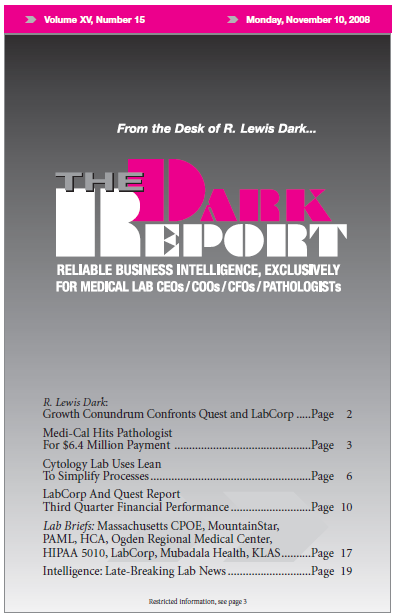CEO SUMMARY: Once again, government health bureaucrats are overreaching in their efforts to reduce spending and collect money from any source. A California pathologist has been hit with a Medi-Cal demand for $6.4 million in repayments, simply because he served as laboratory director for two lab companies that Medi-Cal knew had closed before auditors requested …
Medi-Cal Hits Pathologist For $6.4 Million Payment Read More »
To access this post, you must purchase The Dark Report.


